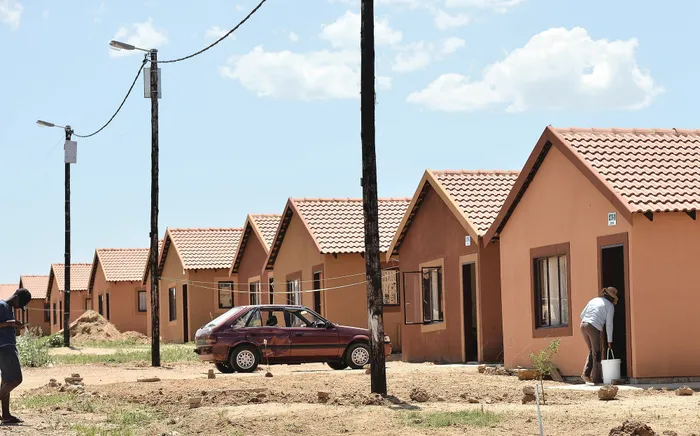
Affordability of energy-efficient and renewable energy products may be a challenge in marginalised low-income neighbourhoods, where many communities cannot afford the latest green upgrades and technology.
Image: African News Agency (ANA)
While the latest green living innovations and trends are good for the planet, they can also significantly reduce household costs while increasing property values.
"The eco-friendly home is rapidly becoming the new standard in South African real estate," says Giovanni Gaggia, CEO of Real Estate Services South Africa. "We're seeing a marked shift in buyer preferences, with energy-efficient and sustainable features now top priorities rather than luxury add-ons."
For instance, the smart induction cooking systems use up to 70% less energy than traditional gas stoves while offering precise temperature control.
"South African homeowners are particularly drawn to innovations that address our unique challenges," Gaggia notes. "With ongoing energy concerns, solutions like the latest cold-climate heat pumps that operate efficiently even during power fluctuations are proving extremely popular."
Another standout from 2025's sustainable product lineup is the new generation of water-smart appliances.
The latest washing machines now feature specialised cold-water wash cycles that clean just as effectively as warm water while using significantly less electricity.
"In a water-scarce country like ours, technologies that reduce consumption without compromising lifestyle are invaluable," Gaggia says. "We're seeing homes with comprehensive water management systems selling up to 15% faster than comparable properties without these features."
South Africa is said to not be just importing green solutions but creating local ones.
The recent Circular Economy Demonstration Fund has supported several local initiatives, including eco-friendly building blocks made from 70% recycled waste content.
"What's particularly exciting about South Africa's green building movement is how it's addressing multiple challenges simultaneously," Gaggia points out.
"The interlocking blocks developed by Key Bricks not only repurpose waste materials but also create housing more quickly and with less skilled labour – a win for sustainability, housing shortages and job creation."
The Green Building Council South Africa (GBCSA) reports that certified green buildings now command premium prices, with energy-efficient technologies reducing operational costs by up to 30%.
The EDGE certification (Excellence in Design for Greater Efficiencies) has become particularly popular for residential properties, pushing developments to use at least 20% less energy, water, and embodied energy in materials.
For homeowners looking to embrace these trends, Gaggia offers practical advice: "Start with an energy audit to identify your biggest consumption areas. Often, simple changes like switching to smart LED lighting or installing proper insulation can deliver significant savings before investing in larger systems."
Looking ahead, Gaggia predicts that homes with integrated renewable energy systems, water-wise gardens, and smart home technology will continue to appreciate.
"The most forward-thinking homeowners are creating fully integrated eco-systems – where solar power runs energy-efficient appliances, greywater systems feed indigenous gardens, and smart technology optimises consumption patterns."
Real Estate Services South Africa said that whether one is building, renovating, or simply looking to reduce their environmental footprint, these eco-friendly trends offer practical pathways to a more sustainable – and valuable – home.
In a blog published last September, Green Business Benchmark, a Clearyst company, highlighted that the affordability of energy-efficient and renewable energy products poses a significant challenge to the sector's sustainability goals. Its mission is to enable organisations to take real, measurable steps toward sustainability.
It said this was particularly for marginalised low-income neighbourhoods, where many communities cannot afford the latest green upgrades and technology, such as solar panels and electric vehicle charging stations.
“Even replacing outdated home appliances with energy-efficient models has expensive upfront costs that are unattainable for some households and companies.”
The company said that for sustainability to truly become the standard for real estate, investment opportunities in renewable energy and efficiency must be more feasible for all communities. Luckily, several state and municipal incentive programs are bridging the gap, it said.
Meanwhile, on Tuesday, Standard Bank announced the launch of its Sustainability Academy, a comprehensive learning platform designed to bridge the sustainability knowledge gap and empower business clients across the continent with practical sustainability and Environmental, Social, and Governance (ESG) solutions.
According to the bank, the academy addresses a pressing challenge in today's business landscape, where, while many companies recognised the importance of sustainability, there remained a significant knowledge gap in implementing practical, actionable sustainability strategies.
It said that with ESG criteria increasingly factoring into investment and business decisions, business leaders needed concrete guidance on how to transition to sustainable practices while maintaining economic growth.
Independent Media Property
Related Topics: